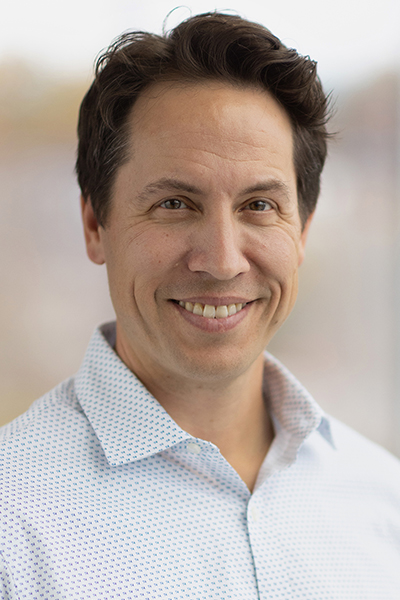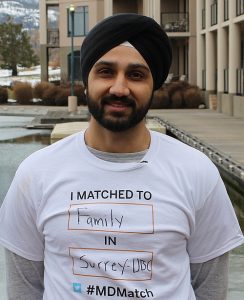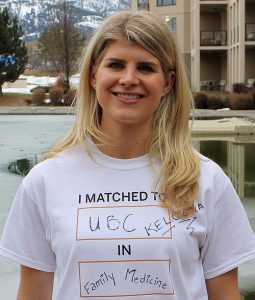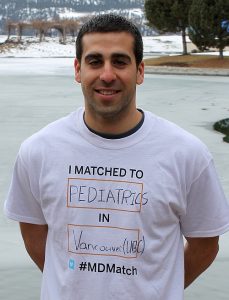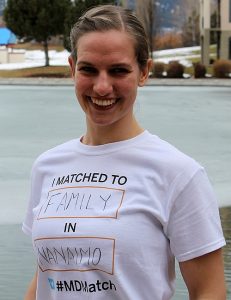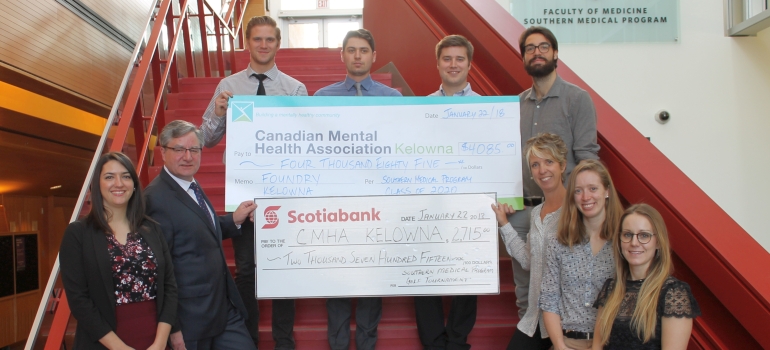The Southern Medical Program Class of 2021 have arrived in the Okanagan to continue their MD undergraduate studies. Meet some of our first-year medical students:
 Tami Lin
Tami Lin
Hometown: Coquitlam, BC
Why did you choose a career in medicine?
I am fascinated by the inner workings of the human body and have an interest in anatomy and physiology. I’ve also had previous positive experiences being involved in patient care and want to continue doing so in a more hands-on way.
What do you like to do in your spare time?
I studied piano performance during my undergrad, so a lot of my time is spent there. I also like knitting, and since I like keeping my hands warm I make a lot of mittens.
If you could travel anywhere, where would you go and why?
New Zealand – I am the biggest Lord of the Rings fan (my mother bought me a replica of the One Ring which I have worn all day every day for the past five years). The fact that Xena: Warrior Princess was also filmed in New Zealand is a bonus.
What are you most looking forward to about training with the Southern Medical Program?
I’ve only ever lived in Coquitlam and the Vancouver area, so I am most excited about living in Kelowna and experiencing a different part of BC.
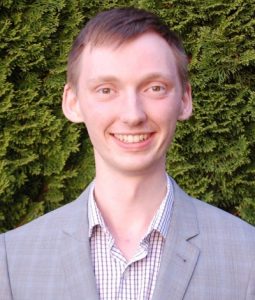 Dakota Peacock
Dakota Peacock
Hometown: Abbotsford, BC
Why did you choose a career in medicine?
Medicine represents a fabulous opportunity to integrate research, community service, leadership, and advocacy while also exploring what makes us human. Additionally, the privilege granted to physicians is optimal for serving individuals in my community while also pursuing research to benefit those around the world. I am convinced the extent of this opportunity is unique to medicine.
What do you like to do in your spare time?
I enjoy snowshoeing in the winter, travelling in the summers, and looking up pictures of cute puppies in between.
If you could travel anywhere, where would you go and why?
I would like to travel to the moon. Seems like a hoot.
What are you most looking forward to about training with the Southern Medical Program?
The most exciting part will definitely be training alongside this small cohort in the sunny Okanagan.
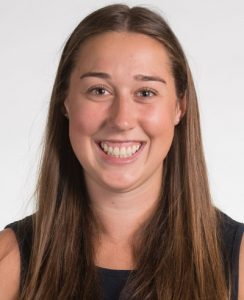 Taiysa Worsfold
Taiysa Worsfold
Hometown: Kamloops, BC
Why did you choose a career in medicine?
Growing up I was inspired by the impact my mom (a labour and delivery room nurse) had on people in our community. I wanted a career that I could also impact the community and help people. I am also passionate about healthcare, science and love the life learning aspect of medicine.
What do you like to do in your spare time?
Play basketball, ski, go boating/camping, play with my dog and hang out with friends and family.
If you could travel anywhere, where would you go and why?
Vietnam. There is an amazing rural village that I visited in 2016 and I would love to return there. The food throughout the country is delicious and the people are so friendly. Vietnam also has beautiful quiet beaches!
What are you most looking forward to about training with the Southern Medical Program?
I am looking forward to being exposed to opportunities in smaller communities and also to enjoy some of the natural beauty of the area in my spare time.
